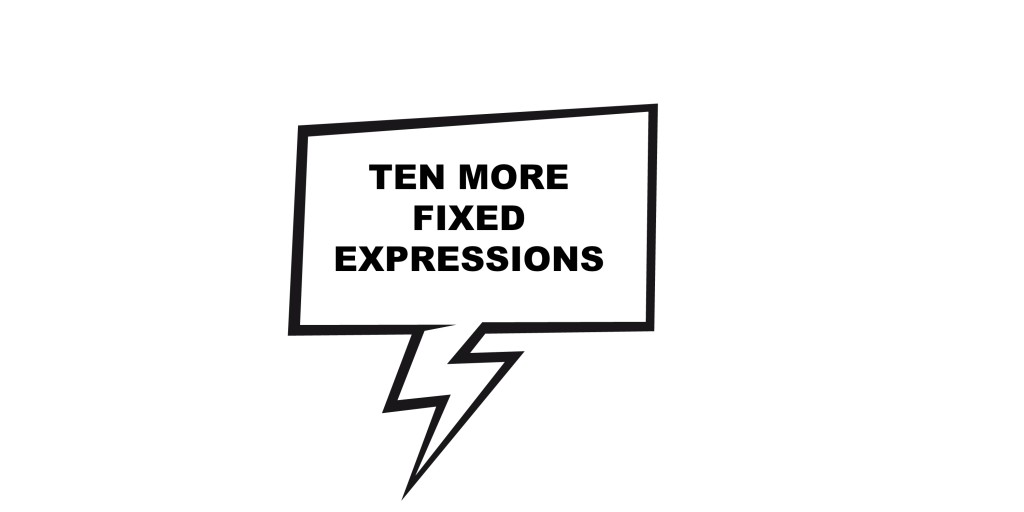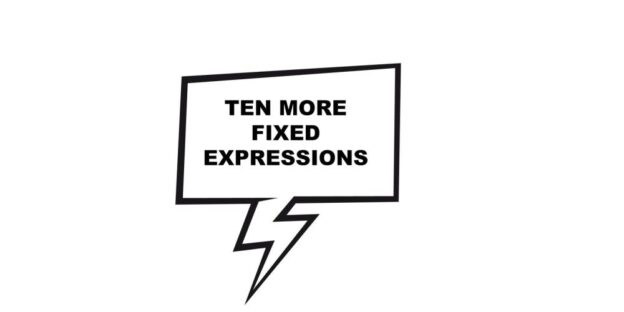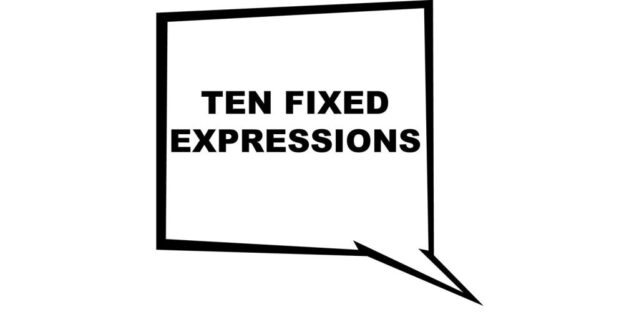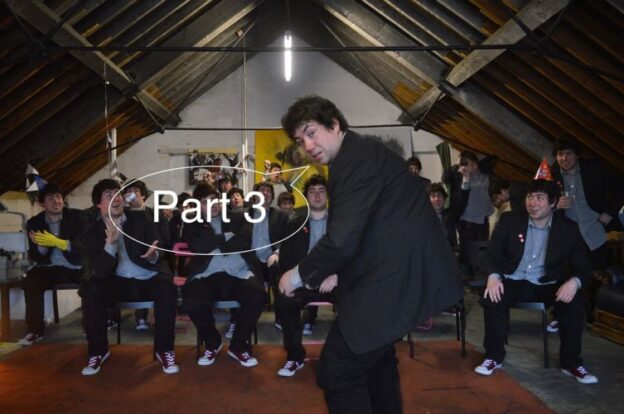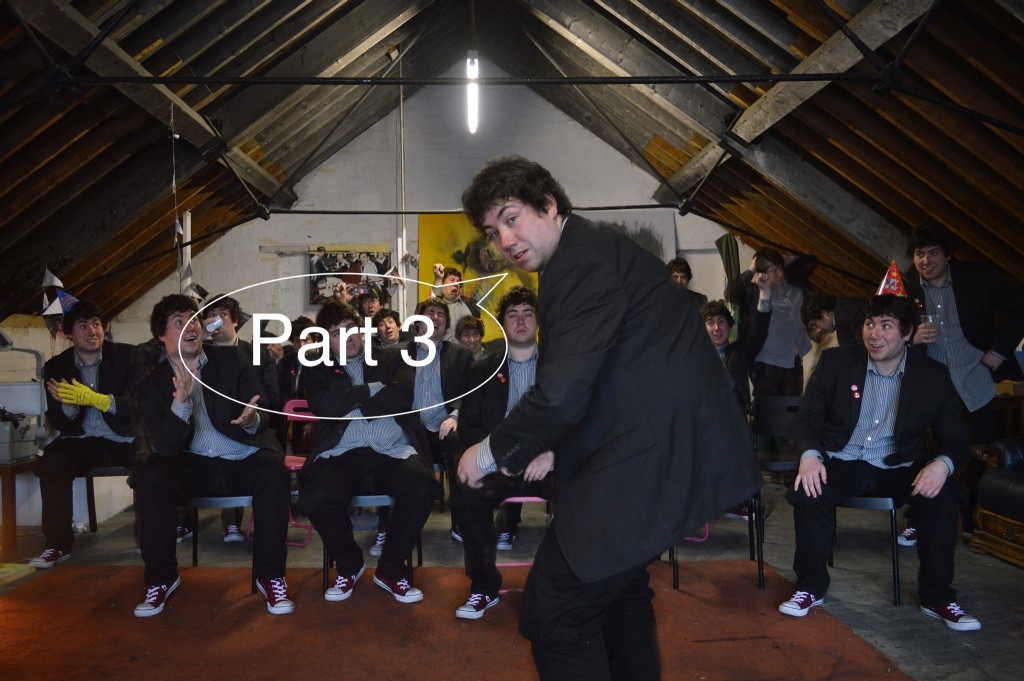This podcast contains everything you should know about the general election which is happening across the UK this Thursday 7 May 2015. This could be a long episode, but I’m so determined to cover the whole story that I don’t mind how long it takes. I feel it’s worth spending some time to cover this topic in enough detail to make it genuinely interesting and informative. I’m not there in the UK at the moment, so I’m not able to take part in the discussions, or watch all the coverage on the TV, but I care about this a lot and I’ve just got to get this stuff off my chest – which means, I’ve got a lot of things inside that I want to tell you about. This is an important election (like any election) and it’s interesting because we genuinely don’t know what’s going to happen, and the consequences of the different outcomes could be quite drastic. Voting is on May 7, but I’ve already voted – I did it by post (yes, that’s possible in the UK). No, I’m not going to tell you who I voted for – I’ll let you try and work that out if you want.
 [DOWNLOAD] [PART 2]
[DOWNLOAD] [PART 2]
I was on TV last week talking about this election last week. I wish I had been as prepared then as I am now! It was a live TV debate on France24. They invited me on at the last minute because they needed a guest who was British and was able to talk about the election. I knew a few things about it because I’ve been covering this topic in my classes this year, and last year and so I agreed to go on the show. Also, I think they were interested in having a comedian on the show, and so they ended up with Luke from Luke’s English Podcast in the studio! 2 hours later I was on live television, and yes I did manage to plug Luke’s English Podcast, as well as suggest to President Francois Hollande that he take English lessons with me. So, Francois – if you’re listening, the offer is still open! I did okay in the TV debate, although I was a little unprepared. Now, after having dealt with this subject in class a few times this week already I feel like I am even more prepared, and actually have a good grasp of the situation, good enough to be able to explain it to you, here, in this podcast, clearly and simply.
That is my challenge in this episode – to get across the complex facts and issues relating to this election in an understandable and engaging way. Your challenge is to just try to follow it step by step! The end result should be that you’re more well-informed about this significant moment in British life, and I’m sure you’re going to pick up plenty of language in the process.
You’ll be glad to know that you can read a lot of what I’m saying here on the page for this episode at teacherluke.co.uk. If you want to follow this, read these words, repeat it yourself, check some of vocabulary in a dictionary or whatever studying method you have, you can do it. Not every word is transcribed as I might improvise and go off script from time to time, but the main content is certainly there for you to read. :)
This subject is relevant to you
You might not think this subject is particularly relevant to you, but I’d like to try and persuade you that it is.
The UK remains one of the world’s most important countries. What happens here is in the interests of the whole world.
If you’re in a European country it is particularly relevant, because what happens in this election could dictate the UK’s relationship with the EU, including steps towards our exit from the union.
This election is fascinating because we really don’t know what’s going to happen. Usually, it’s pretty obvious. Not this time.
It could result in big changes to the UK’s constitution, including the our exit from Europe, Scotland’s exit from the UK, a fairly significant social and economic change of direction for the country, and changes to the way our government operates within Parliament. Is this the end of an age in UK politics? Maybe.
So, I think it is relevant to anyone interested in significant events beyond their borders – and I imagine that if you’re a listener to this podcast, you have some curiosity or relationship with the UK, which could make you want to know more about this big moment.
This is the number 1 story in the UK at the moment. There’s a huge buzz about it in the newspapers, on TV, all over the internet. It’s the big story – much bigger than the birth of the second royal baby, which happened on Saturday, and named yesterday (Charlotte Elizabeth Diana). So, in this episode I’ll explain the main details and nuances of this story, specifically for you as a non-native speaker, so you can understand it’s significance.
And as if that wasn’t enough you’ll get plenty of vocabulary, the opportunity to hear the leaders of 7 political parties in the UK. That’s 7 different voices from 7 different key figures in this election, including 1 Scottish accent and 1 Welsh accent. At the end of this episode, you’ll be far more informed about British politics than you were at the beginning, and we all know that knowledge is power. You may be able to impress people with your ability to chat about UK politics. Honestly, I’m often surprised at how little people understand politics, including fellow Brits. I think everyone benefits when we engage in politics. I’m certainly not cynical about this subject, and I definitely do not find it boring. Cynicism about politics is dangerous, because if we don’t care about politics, and ignore the subject – it doesn’t go away, it just gets dominated by people who do care about it – and often that means people with extreme, fringe ideas. So, let’s engage in politics because it’s not only fascinating, but vitally important.
So, are you convinced? I hope so.
The election is on Thursday, just a couple of days away. So, by the time you listen to this, the voting will probably have finished and there will probably be a new government in power. Many of you may be listening to this ages after the event. I still think it’s relevant, even some time after the election, because it’ll give you insight into not only the background story of what happened in May 2015 and the context of what’s going on in the UK at the moment, but it should also help to explain events that are happening in the future.
Context – the last 5 years
Traditionally, the UK has been dominated by two political parties – Conservatives (right) and Labour (left).
Now we’re seeing a much more diverse set of parties who not only represent different positions on the political spectrum, but also different regions in the UK. This is a story of not just right and left, but of England and Scotland, and also Wales & Northern Ireland of course. It could be the end of the two-party system, and the centralisation of Westminster.
Let’s just have a reminder of some basics of politics in the UK
The whole of the UK is divided into constituencies – these are political areas of the country. Each constituency votes for an MP to represent them in The House of Commons, which is in Parliament, which is in Westminster, which is in London, which is in England, which is in Britain, which is in the UK.
Each constituency has a seat in the House of Commons. There are 650 seats for 650 constituencies. So each seat is occupied by an MP who represents his/her constituency, including the Prime Minister, members of the Cabinet (ministers of different ministries, such as the Ministry of Education, etc) members of the opposition etc.
Those MPs represent different parties of course. That includes the main ones – Conservatives (302), Labour (256), Liberal Democrats (56) and also other ones with smaller numbers of seats, particularly parties that represent specific interests of other nations in the UK, such as the Democratic Unionist Party and Sinn Fein from N.Ireland, the SNP from Scotland and Plaid Cymru from Wales.
Those MPs vote on laws that affect the whole of the UK. After the laws have been passed, and given Royal Assent by The Queen (she basically stamps them “Yes, fine” next! I don’t think she actually does it herself), they are applied in England, Wales, Scotland and Northern Ireland. But, thanks to a process of decentralisation of government power called ‘devolution’, Wales, Northern Ireland and Scotland have their own parliaments which have a certain amount of independent power. They can adapt some of the laws from Westminster, and can write some new laws which apply only to those regions. This is particularly true in Scotland. England doesn’t have a devolved parliament like the other countries. We take laws from Westminster, unchanged. This arrangement has been relatively problem free for England, because the number of MPs from the other 3 countries in Westminster has been quite low, so it’s no big deal. But, if the SNP get lots of votes this year, it means the number of SNP MPs could rise by 40-50 seats, and that means that suddenly a lot of English laws are being voted on by Scottish nationalists. That’s making some English MPs freak out a bit. Do you understand that? Don’t worry if it’s a bit complex. It might make more sense later.
Basically, this is going to be a big year from the Scottish National Party and they’ll probably have a much bigger presence in Parliament than ever before, and that’s going to make a big difference to the way that government is run in the UK. The Scots will have much more influence.
What happened in the last election?
To form a majority government, one party needs to get at least 326 seats in Commons. For example, in 1997 Tony Blair’s Labour Party won 418 seats – that’s a big victory. They assembled a majority government that enjoyed a lot of support from the public (at the beginning). Labour won the next election too, but in the end, Blair lost the public’s support, mainly because he chose to get involved in the Iraq war in 2003 against public opinion. People decided that, with George Bush, he’d lied about his intentions for going to war in the middle east. He said it was about weapons of mass destruction, and it became clear that it was more about imperialism and a struggle for oil. Blair stepped down eventually, and was replaced by another Labour MP called Gordon Brown (an imposing Scottish guy who specialised in economics, was a bit more socialist in nature than Blair, had one eye and was unable to fake a smile on live TV) after a damaging power struggle within the party. Basically, Brown and Blair set up New Labour together in the 90s. They had an agreement that Blair would be the leader, and Brown the finance minister, and that after something like 8 years, Blair would step aside and let Brown have a go at leadership. I think Blair didn’t want to give up the leadership (if we can learn one thing from this episode, it’s that power is massively seductive, and when power is within reach people will be willing to change even their most important principles in order to get it). So there was an internal struggle within the party, and Brown won and became PM, but it left the Labour party divided. Blair is now generally disliked. Brown was also pretty unpopular. He didn’t have the charisma or charm of Blair, and he was PM at the time of the economic crash. A lot of people blame him and Labour for that. This is around 2008, 2009. In 2010 it was time for another election.
There was a lot of voter apathy, and there still is. This is the feeling among voters that voting is a waste of time and effort, because all the candidates are basically the same, they all lie, they don’t keep their promises, they’re corrupt and just seek power and don’t really have our interests at heart. That meant that we had a fairly low voter turnout at the election, and also the nation wasn’t particularly passionate about one candidate in particular. The three main candidates were David Cameron of the Conservatives, Gordon Brown of Labour and Nick Clegg of the Liberal Democrats. None of them did particularly well, and neither Conservatives or Labour got the magic 326 seats to form a majority government. So, the negotiations began. What negotiations? The negotiations to form a coalition government. This is when several parties get together and form a joint government. Usually a smaller party will join a bigger one if they can agree on certain policy ideas and an agenda for government. This involves the usual things you would expect from a negotiation – conditions, concessions, trading powers and so on.
The Conservatives
It was the Tories (Conservatives) and Liberal Democrats who made a deal, and formed the Conservative-Lib Dem coalition which has been in government for the last 5 years. They came into power when the UK was suffering a large budget deficit (the country just didn’t have enough money to pay for everything) as a result of the financial crisis. The Conservative solution to this was to introduce sweeping austerity measures – that means spending cuts. This is one of the key policies of The Conservatives, and part of their ideology. Stop spending money on social services. That means cutting welfare payments or cutting benefit given to people in society who need help, or anything that the state pays for. The logic there is that the state can save money by spending less on its people.
At the same time, they wanted to reduce taxes for the rich, and allow businesses to flourish (to be successful), especially the financial sector (the banks, particularly in London). Don’t tax corporations, banks or businesses too much – let them thrive. If businesses are successful, if there is wealth at the top end of society, that will benefit everyone because the money will come trickling down from top to bottom like a magical waterfall, it will lead to job creation, more people will have spending power and everything will be wonderful. This was the Tory plan. Cut public spending, promote the private sector. The Liberal Democrats, in joining the Conservatives, moved to the right (because Conservatives are a bit right-wing, and the Lib Dems were in the centre, to the left of the Tories). So the Lib Dems moved away from the left in order to get into government. Nick Clegg justified this by promising to protect certain key things – like tuition fees for example (that’s the price you have to pay to go to university in the UK). He promised to make sure the tories didn’t raise tuition fees. But he failed his promise and the government did raise tuition fees. In fact, generally, the coalition has been bad for Nick Clegg because he’s had to compromise lots of his principles, and he keeps having to apologise for it.
So, the Conservative-Liberal coalition went ahead with large spending cuts. Lots of people in the UK protested against the cuts, saying it was unfair and that the conservatives only cared about the rich, and didn’t care about ordinary working people, and they had a point. Anyway, ‘austerity’ has been the big word of this government. Spending cuts. For many people, particularly those in working class or poor communities, this was pretty bad news because suddenly they had fewer services, longer hospital waiting times and so on. So, austerity, austerity, austerity. The tories say “we have a long-term plan for the economy – it’s tough, but it’s necessary”.
Maybe they’re right, because according to lots of analysts, the UK’s economy has had more growth than most other countries in Europe. Maybe it’s been working – but it’s unclear if this growth is due to spending cuts, or if it would have happened anyway. Maybe there are macroeconomic factors which are beyond the control of the tories, which mean that the UK’s economy would grow out of recession quickly anyway, and that if they cared more about communities, then people would generally be happier and quality of life better.
Ultimately, it’s a question of values. We’ll come to that later.
This is long isn’t it! But I hope you’re keeping up!!!
So, the most recent government is David Cameron PM, Nick Clegg deputy PM – conservatives and Lib Dems together, with austerity measures their main economic policy.
The Scottish National Party
Then of course last year we had the high profile Scottish independence referendum. As part of a deal agreed by David Cameron some time before, the Scottish were given the choice to be in or out of the UK. I did a podcast about this before, which was very well received by my listeners. There were two camps – the “Yes Scotland” campaign (for independence) and the “Better Together” campaign (against independence). In the end, 55% of people voted “no” for independence. Scotland stayed in the union. Part of the reason people voted “no” was because it was still a pretty good option for them as all the MPs from England (Lab, Lib and Con) all promised to give Scotland more devolved powers as long as they stayed in the union. “We’ll give you more power – but please don’t leave us!” So, the campaign was such a great advert for Scottish political interests in the UK that the SNP have since attracted loads and loads of support in Scotland. All that campaigning for Scottish rights has been wonderfully helpful for Nicola Sturgeon, the leader of SNP. Now, the SNP are probably going to win a landslide victory in Scotland, stealing a lot of seats from Labour. 40-50 extra Scottish MPs are probably going to arrive in Westminster. How’s that going to affect UK politics?
So, tories are in government, pushing spending cuts and being accused of just looking after their rich friends in the banking industry (who appear to have got away with losing/stealing all our money). Lib Dems have been supporting them, but trying to stop them going to far.
SNP have been getting loads of support in Scotland.
What about Labour?
After losing out in the last election they changed their leader. There was a race for leadership, and it ended up being between two brothers. Ed Miliband and David Miliband. In the end, Ed won, but he had to stab his brother in the back to do it (not literally). Basically, he got ruthless and undermined his brother’s campaign, making friends with key Labour supporters, and pushing a more traditional left wing agenda. So, Ed Miliband became the new Labour leader. The thing is, he’s not particularly impressive. His party is more popular than him really. He’s a bit awkward, makes some clumsy mistakes like forgetting important details in speeches, or stumbling over his words sometimes. He also looks a bit odd, like a character from a Wallace and Gromitt cartoon, and he has a nasal sounding voice. Also, he comes from a fairly wealthy background, despite being quite left wing. All those things work against him, but nevertheless he and his party have consistently challenged David Cameron’s government over their position on social and economic issues. He’s emerged as a candidate who actually cares about ordinary people, and who has the guts to take tough decisions and lead the country. So, although he’s not quite as popular as the Labour Party itself, Miliband could be our next PM. It all depends on small details in the voting on Thursday, and whether the tories can make a coalition deal with other parties or not.
Oh, I forgot something important – UKIP and Nigel Farage.
We’ve seen from history that whenever times are tough and there’s a financial crisis, people get scared and insecure, and they look for a scapegoat to blame for all their problems. That scapegoat is often foreign people, immigrants and their damaging effect on a country. UKIP stands for the United Kingdom Independence Party, and they have, in my opinion, some slightly dangerous, reductive and simplistic solutions to the UK’s financial and social problems.
Essentially, for UKIP, all of our problems are caused by our open door policy on immigration. The government doesn’t have enough money – immigration, we’re spending too much on welfare for immigrants. You can’t get an appointment to see a doctor? Immigration. You can’t find a job? Immigration. There’s too much traffic on the road? Immigration. You’ve got a bit of a headache? Immigration. You keep losing socks in the washing machine? Immigration.
Oh and the other problem is the European Union. According to Nigel Farage, the UK needs to leave Europe. If we do that we can choose our own laws, close the open door to immigrants, and save billions of pounds a year.
Farage has quite a high number of very vocal and loyal supporters. Sometimes they’re accused of racism. Sometimes UKIP members and supporters are racist, and then Farage has to make a statement saying “I’m disappointed in this person, they don’t represent the views of UKIP etc”. I’m sure it’s a familiar story to you – I’m sure there are similar parties in your countries that tell us that the source of all our problems is the dirty, criminal, lazy, disease infected influence of ‘other people’ from across our borders. In my opinion it’s small minded, it’s distorted by prejudice, it’s backwards looking (in the mind of Nigel Farage, Britain was at it’s best when fighting against foreign invaders) and it’s dangerous.
Farage wants the UK to have an early referendum on the EU.
There are arguments for leaving the EU – like that it would save us money, and we could be free to choose other trading partners, but I wonder if there’s real truth in them. If we did leave the EU, surely we would lose billions from all the lost business, the companies that would close or pull out of the country, the trade deals we would lose with our biggest market, the bad faith that would develop between the UK and other European nations, etc etc.
But, lots of people seem to agree with him and there’s a chance that if UKIP get enough support in enough places, that they could gain enough seats to be in a position to form a coalition government with the Conservaties, and that is bound to involve one key condition – a referendum on the EU. So, watch this space – Britain’s exit from the EU (or Brexit) is more likely than you might think. Would the conservatives offer an early referendum on EU membership if it guaranteed them power? Yes, I think they would.
There are also other parties, with less influence, but who could be important in any coalition deals. This includes the left-wing Green Party, Plaid Cymru (representing Welsh interests, also quite left wing) and parties from Northern Ireland such as the Ulster Unionists (would support the conservatives).
End of Part 1 – 1hr05min
Click here to for part 2.

![]() [DOWNLOAD] [AUDIOBOOK OFFER]
[DOWNLOAD] [AUDIOBOOK OFFER]
